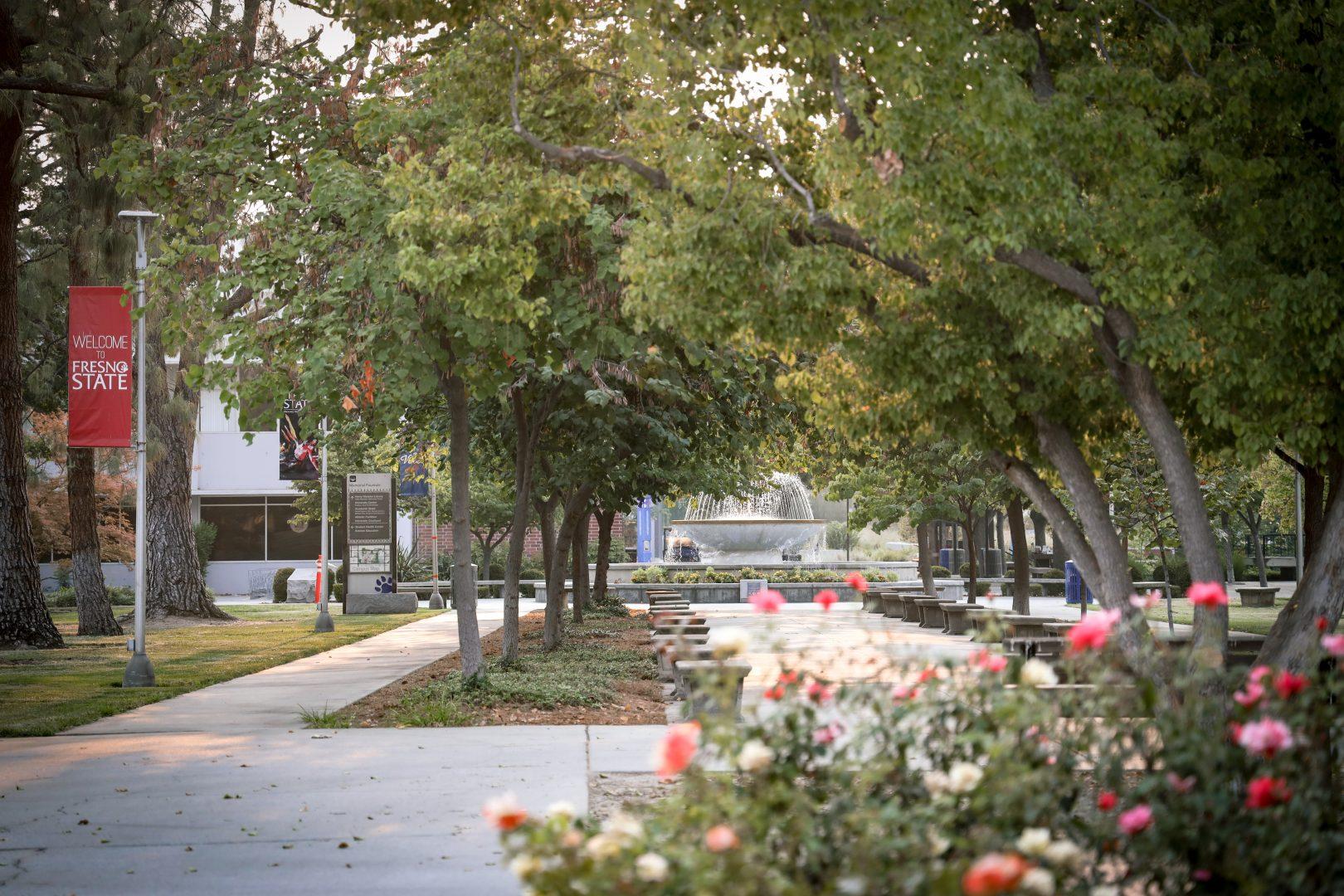The Fresno State Cross Cultural and Gender Center’s (CCGC) Latino/a Programs and Services hosted a virtual open discussion event regarding the impact COVID-19 has had on people from various racial and ethnic backgrounds on Feb. 22.
The event, titled “The Impact of COVID on Black, Indigenous and People of Color (BIPOC),” required attendees to register through Zoom and provided discussion questions on the impacts COVID-19 has had on their personal lives and their communities.
Latino/a and Cross Cultural Programs and Services’ program coordinator Deyanire Del Toro and student coordinator Janeiry Perez facilitated and planned the event with the hopes that it would provide the community a safe space to discuss the difficulties ethnically diverse communities are facing because of COVID-19.
“There are clear disparities in the treatment of Black, Indigenous, and people of color [BIPOC] for COVID-19 and we felt it important to host a conversation that centered the concerns of BIPOC during these turbulent times,” Del Toro said.
Perez said they felt it was important to provide a safe space for ethnically diverse communities to share their personal hardships because of COVID-19.
“We wanted to bring to everyone’s attention that whatever is happening is not okay and it’s okay to talk about it. And to make sure that there’s attention brought to the problem,” Perez said.
Participants’ discussions revolved around questions regarding their personal experiences because of COVID-19 and how they are adjusting to regulations because of pandemic guidelines.
Those in attendance were informed that topics or personal information discussed at the event would remain confidential between participants and that no identifying information about attendees would be shared.
Chris Beck, academic counselor at the college of health and human services advising center, attended the event after receiving an announcement through email from the CCGC.
Beck said he recognized the importance of the topic due to its prevalence in his work as an adviser.
“In my normal duties as an [adviser] I work a lot with students who have either directly expressed how COVID has impacted them or who are suffering from those impacts,” Beck said.
“I’ve read in passing some of the impacts and since Fresno State is both a [Hispanic Serving Institution] and [Asian American/Native American/Pacific Islander-Serving Institution] or in other words since the majority of our students come from communities of color, I really wanted to hear more research and anecdotal evidence.”
By involving himself in open discussions such as the ones held by the CCGC, Beck said opportunities such as these allow for him to educate fellow coworkers and to further his personal understanding.
“I also work directly with future healthcare professionals so for me it’s important to know to continue to educate them on the importance of educating themselves on bias in the medical community,” Beck said.
Perez said that a major goal behind the event was to offer different ethnic communities the opportunity to learn from one another and to understand the experiences and hardships other ethnic groups were facing because of COVID-19.
Through providing open discussion and listening to the experiences of others from various ethnic backgrounds, the event allowed for various perspectives and experiences to be shared.
“We have African Americans, we have Latinx students, we have people from other ethnicities that joined us … that don’t know what’s happening within our communities,” Perez said.
“So, another goal would be to educate those who are not part of our community, and allow those from our community to express how they feel, on how they’re being treated.”
Del Toro said open community dialogue events held by the CCGC occur bi-weekly in a program called Conversations that Matter, however, the discussion about COVID-19 is one of the first hosted by Latino/a Programs and Services.
She said community reception for such events continues to be well-received.
For Beck, the opportunity to listen and share personal stories and experiences regarding the impacts the pandemic has had on a number of communities allows for attendees to develop a better understanding and to become educated on the issue.
“The vast majority, if not all, of CCGC events I’ve been to have been educational, and the format where personal stories are accepted and encouraged really helps get past the cold, faceless nature of just reading statistics or articles,” he said.
“It’s one thing to read about discrimination in healthcare, but it’s another to hear how people had actually been treated.”
Del Toro hopes to plan future open discussion events on the same topic to give the campus community more opportunities to engage in discourse revolving around COVID-19 and its impacts on marginalized communities.
“It saddens me to know that so many Black, Indigenous, and people of color are dying as a result of the racism that runs deep in this country,” Del Toro said.
“My hope is that now that COVID-19 is here and has bubbled these issues up to the surface, we can create change that could literally save the lives of thousands.”
For Perez, she said she hopes these events will continue to foster discussion and educate communities on ways they can better support each other.
“[This topic] is just very sensitive, you know, because it has to do with race,” Perez said.
“And whether I like it or not, it’s there, and it hurts to know that my people are suffering through this…I would say it’s important for me to educate other communities and to know that I am very privileged to work from home, and whatever I can do to help others, I will.”




